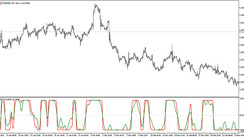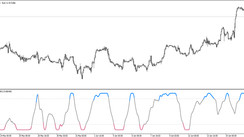The recent peaceful admission of Croatia into the euro zone has contributed to the emergence of a new common thinking about the euro currency. Many believes that, thanks to the fact, that the currency functions perfectly, the 2011 euro crisis is a distant memory. Unfortunately, things are not quite as bright as they seem.
The fundamental issues with the euro appear when two situations happen at once - there are deflationary forces, and the economies of the member states of the euro zone are very diverse. Both the good and the bed thing is that none of these conditions are in effect right now. High inflation rates have been observed, particularly in the euro zone, and exceeded 9% in December 2022. Although inflation has its own issues (more on that later), it does not immediately cause high unemployment rates or loan defaults and it at least benefits some debtors.
For example a massive deflationary pressure during the 2011 crisis put the solvency of the Greek banking system in jeopardy. Numerous customers withdrew their savings because they did not fully trust the Greek government's deposit guarantees, which put more tension between the government and the financial institutions. Whatever issues the countries in the euro zone may be facing today are not those. Another issue in 2011 was how some countries were performing significantly better than others. Greece and Italy's economies were quite weak, whereas Germany's was rather robust. And that’s problem of two speed Europe.
Today's euro zone issues are more widely dispersed. The most recent figures point to shallow instead of a deep recession, although nations like Germany still confront significant difficulties. The relative weakness of the euro, in turn, has reduced some of the potential losses to the economies in the eurozone.The Russian invasion of Ukraine, which resulted in hyperinflation, high oil costs, and political unpredictability, is another factor.
If the zone performs well during inflationary periods, lawmakers who support it will grow more adamant about greater inflation rates. The European Central Bank will find it more difficult to achieve its objective of price stability as a result. Real interest rates are frequently high during periods of disinflation that are brought on by high inflation. When the ECB raises interest rates nominally, those rates also climb in real, inflation-adjusted terms when inflation declines. In conclusion, there are still concerns regarding how the euro zone will support strong economic growth and stability. Many issues, including the dysfunctionalities of the euro zone, are covered up by inflation, but never for too long. But problems are not concerning only euro zone, they appears also overseas.





